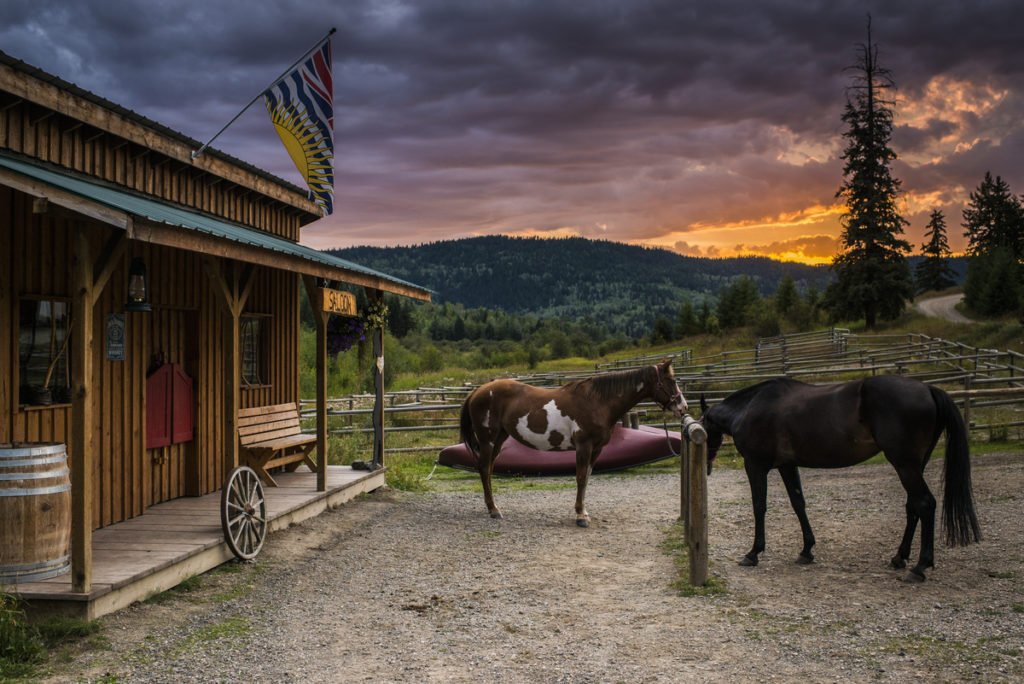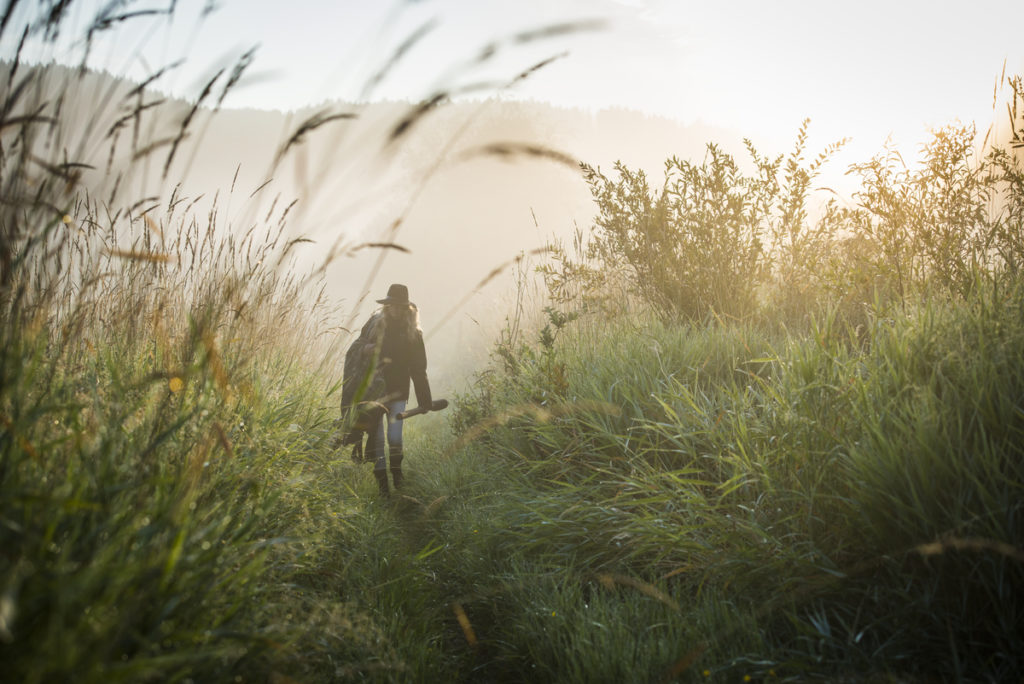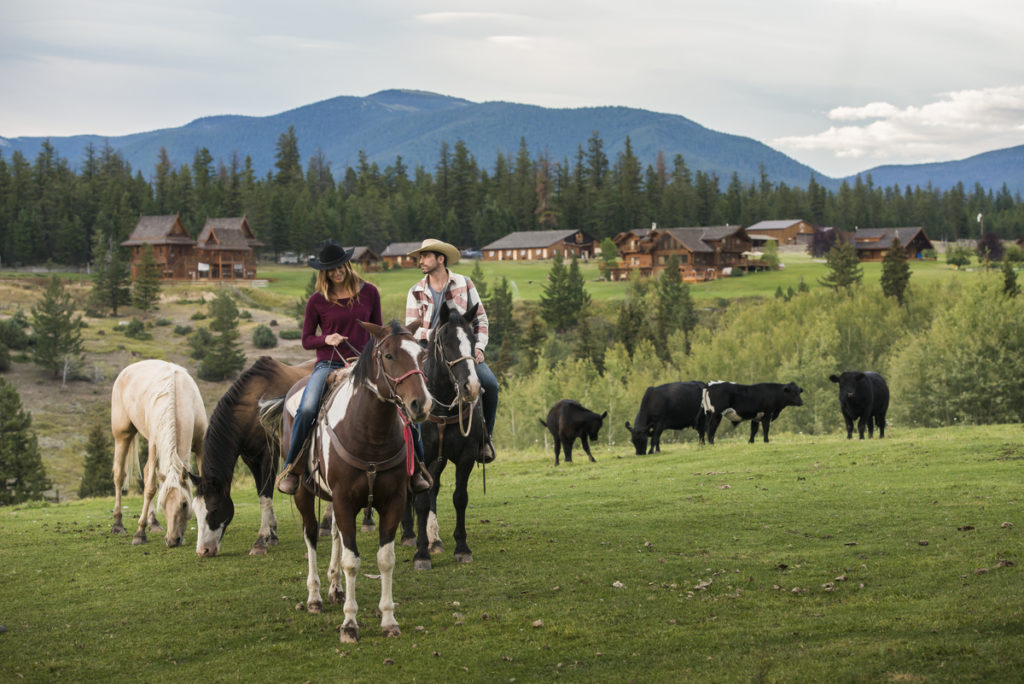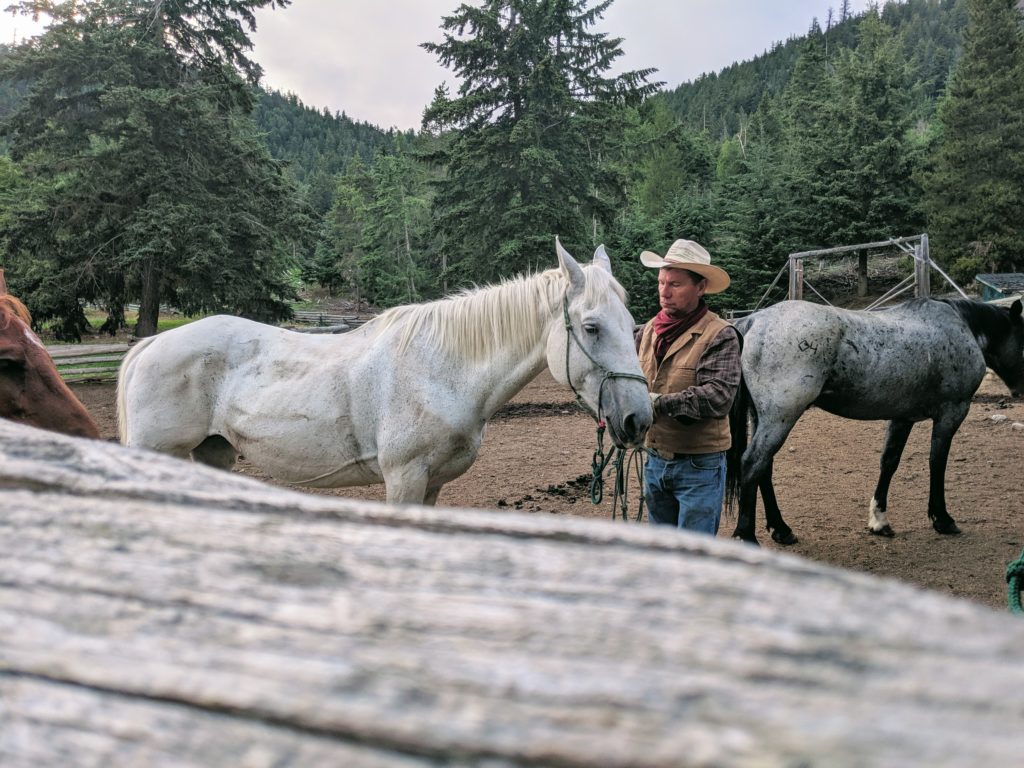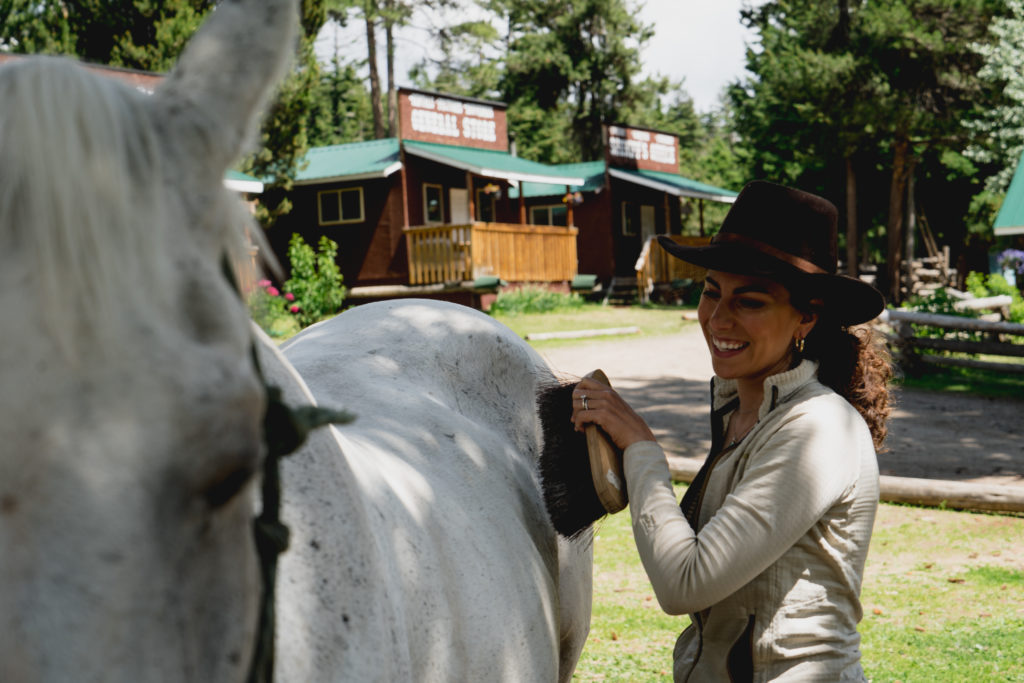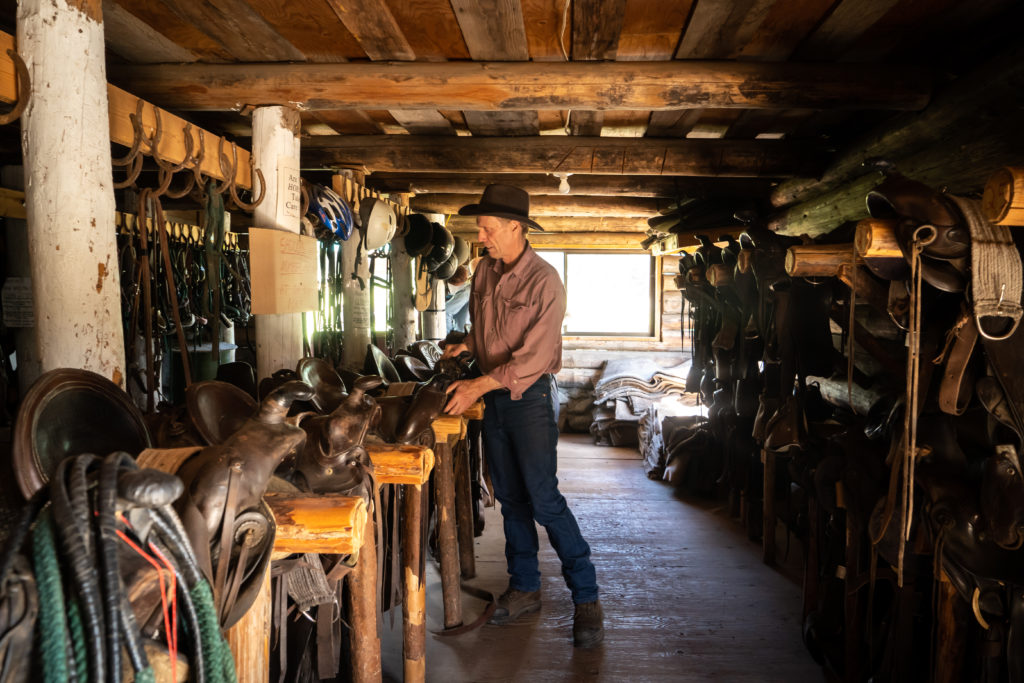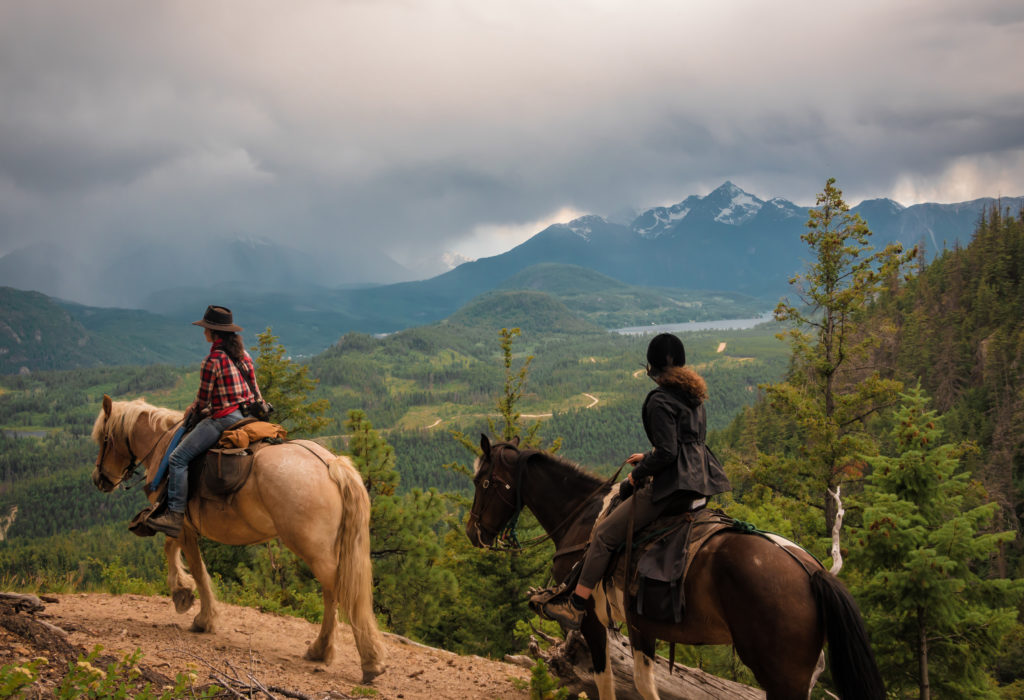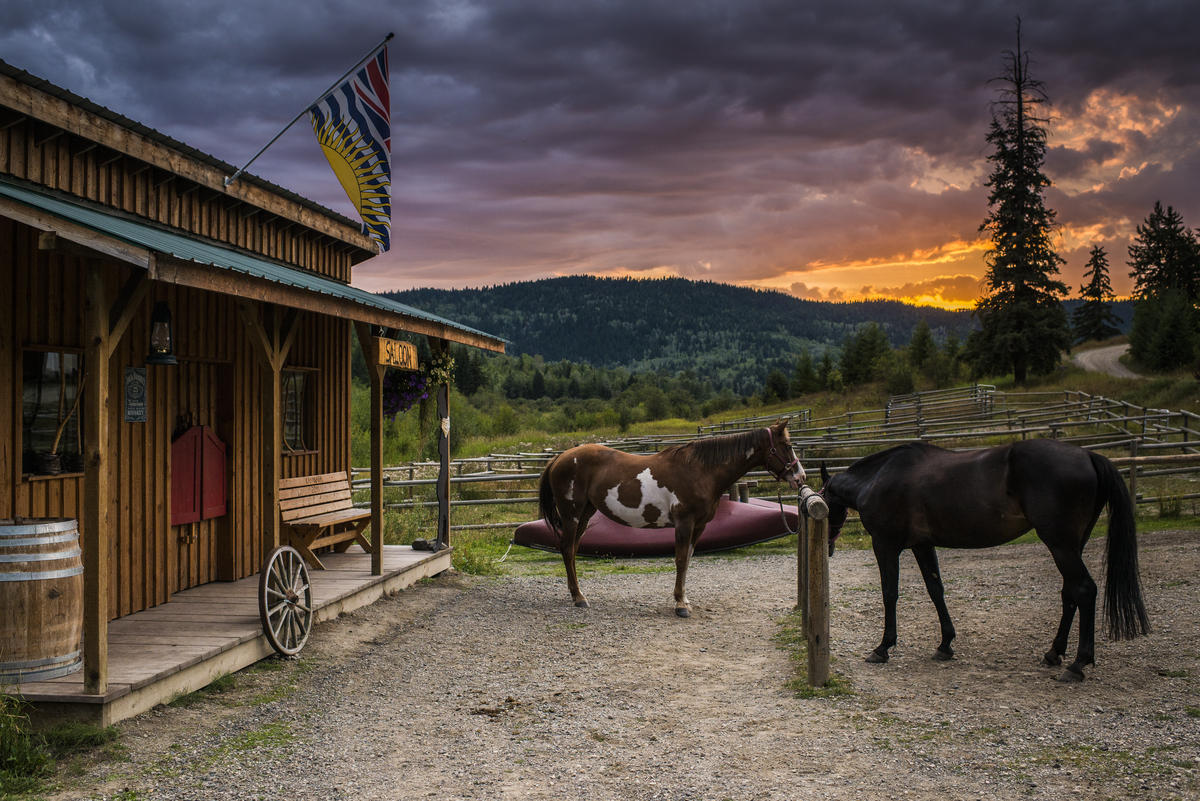Deeply rooted in the culture of the Gold Rush Trail is the lifestyle’s of the Cowboys and Ranch Hands who helped to tame and cultivate this section of BC’s wild and unforgiving lands.
You are entering cattle country as you head north through the Fraser Canyon, stemming from the HBC Fur Trade and expanded during the subsequent Fraser River and Cariboo Gold Rushes. Within two months of the discovery of gold on the Fraser River (1858) and the first miners crossing into the international boundary from California, General Joel Palmer crossed the Border at Osoyoos from Fort Okanogan in Washington Territory and travelled through the Okanagan Valley and on to the Thompson Valley with a cattle drive and wagons pulled by oxen. The very next year in 1859, he drove the cattle as far as Fort Alexandria on the Fraser River in the Cariboo and over the next decade, about 22,000 head of cattle followed from the Oregon Territory mostly to the Barkerville mines (Cattlemen BC).
Vacationers who want a taste of the ranch and cowboy/cowgirl culture and lifestyle, you can stay at one of the many Guest Ranches in the area with experiences ranging from high-end luxury getaways’ to rustic cowboy living and pack trips. If you’re looking for a quick fix, rodeos take place in many communities along the Gold Rush Trail, with Williams Lake Stampede being the most famous. The Gold Rush Trail is steeped in colourful cowboy charm, waiting for you to discover and experience. From Ashcroft in the south to Clinton to the Land of Hidden Waters to Quesnel, the Gold Rush Trail is the BC’s go-to destination for rodeos, rustic guest ranches and resort-style luxury guest ranches.
The Gold Rush Trail is a place where riding enthusiasts can immerse themselves in the local cowboy culture in unique ways – guided by experienced cowhands who are more than happy to share their appreciation of this iconic way of life.
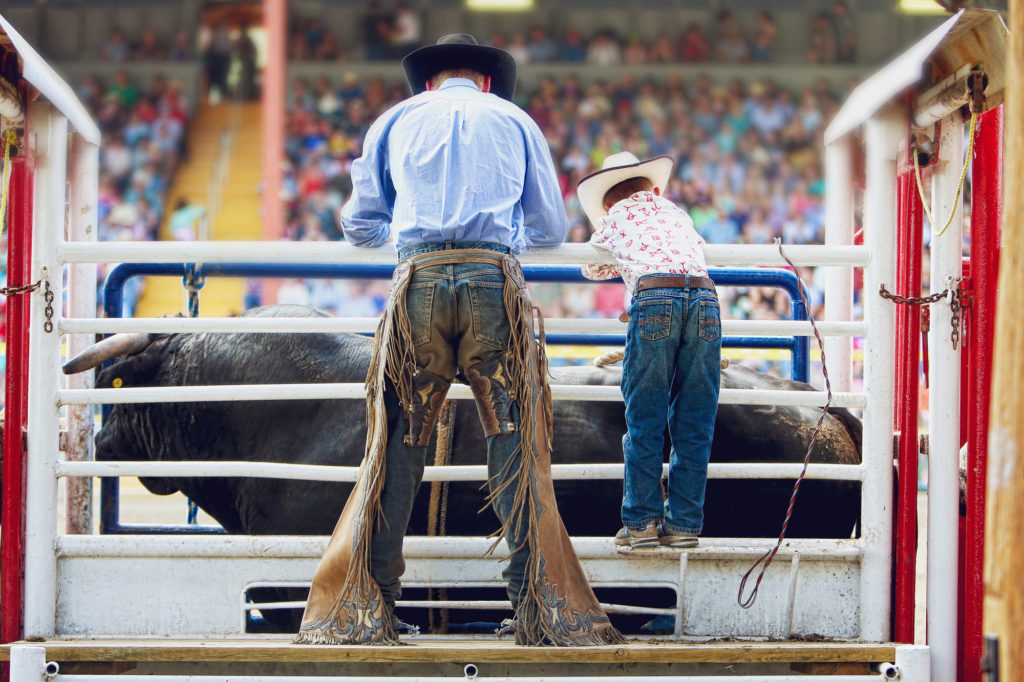
The Gold Rush Trail’s guest ranches, range from those that provide gourmet restaurants, swimming pools, hot tubs, full-service spas and the full glamping experience (“designer” camping) to those offering a more rustic, traditional Canadian experience featuring the stuff cowboy dreams are made of: guitars, cowboy songs and tall tales around a campfire, bunking down in an old-fashioned log cabin or sleeping under the stars in a snug bedroll, waking at dawn to the howl of a distant coyote and the aroma of coffee, baked beans and bacon crisping over an open flame. Or, here’s your chance to relax with a massage after a long day’s ride, to catch a rodeo, to videotape the skills and courage of both riders and animals – to treat your sweetheart to a distinctly western glamping experience. No matter what your wild west dream is, the region’s ranch hands are experts at matching horse to rider, at ensuring both novices and experts are fitted with the ‘right’ in-the-saddle getaway – from family friendly, low-impact trail rides through aspen and jack-pine forests to multi-hour saddle treks featuring arid, sagebrush-covered vistas stretching as far as the eye can see.
For those keen to learn more about cowboy history, a visit to the Museum of the Cariboo Chilcotin in Williams Lake is another must. Exhibits here are dedicated to preserving and honouring B.C. cowboys and cowgirls of the past and present, including how cowboys and cattlemen tamed B.C.’s Wild West. The museum also houses the B.C. Cowboy Hall of Fame, and its annual Hall of Fame inauguration (held at the Williams Lake Indoor Rodeo in April) is an opportunity to meet B.C.’s ranching and rodeo pioneers. For a more current take on cowboy culture, the big, outdoor Williams Lake Stampede in July is a sanctioned ProRodeo event showcasing local and international talent. B.C. Rodeo Association-sponsored events can also be found throughout the region, including local rodeos staged in Clinton, Williams Lake, Interlakes, and Quesnel – with each rodeo reflecting the spirit of that community, and offering its own special twist on the traditional rodeo format. The Quesnel rodeo is an example of this, complemented by the city’s Billy Barker Days, for which townsfolk parade about in their best 1860s garb while enjoying festival activities. Bella Coola’s annual attraction tempts all comers to try their luck at cow patty bingo. Children are the stars of spring’s Little Britches Rodeo in 100 Mile House (featuring such entertaining highlights as mutton busting, goat tying and dummy roping). Clinton’s May extravaganza features a full-on Western Heritage Week, with cowboy poetry readings and western musical performances and an old-time ball.
